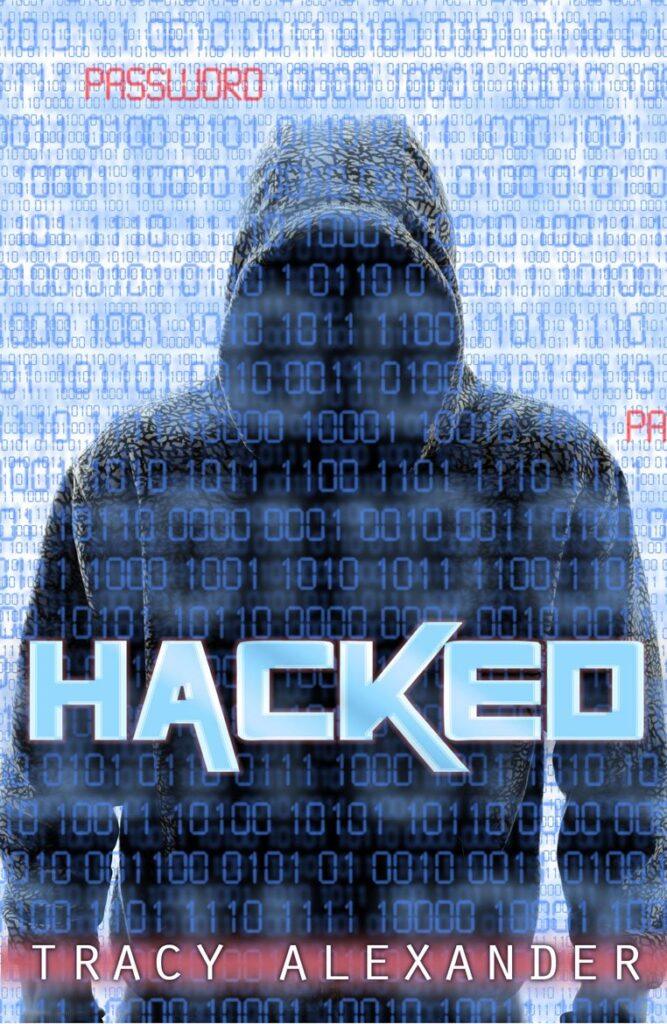Tracy Alexander, Hacked. Scholastic, 1 April 2015. 288pp. $16.99 (pbk) ISBN 978 176015 2895
Hacked is a really griping and topical novel, one in which you become really involved with the main character, Dan. He’s an exceptionally gifted boy, who is misdiagnosed as ADHD and put on medication for some years. His grandmother, however, sums it up by saying there’s nothing wrong with him, he’s simply too clever for his own good. Dan is obsessed with computers and is a real ‘cyber-geek’. He finds hacking really easy and starts by adding some online credit to his girlfriend’s mobile phone. Things develop from there – develop and start to unravel – when he strikes up an online relationship with someone called Angel. Who is Angel? Dan doesn’t know (and neither do we) and there is a salutary lesson here for anyone making ‘friends’ with an unknown person on the internet.
Things go really wrong for Dan when he is challenged as to whether or not he could hack into a military site. When he does, a drone goes missing. Is it really his fault? And if so, how can he stop the progress of this potentially deadly weapon? Once the US government becomes involved, Dan is finally well out of his depth as is his family. Dan learns about such things as extradition orders. Just because he’s extremely bright, doesn’t mean Dan is worldly-wise and his naivety about the consequences of certain on-line actions is partly what gets him into such trouble. He certainly didn’t mean to become a cyber-terrorist, but that is a position that is difficult to defend in law.
Dan is rather isolated, and his parents, although quite loving, do not really know what he is doing. They don’t understand the depth of his involvement in all things ‘cyber’ and are utterly shocked when forced to confront this. Their support for Dan through his legal ordeal is, however, absolute. The characters are all convincing and Dan’s little sister is a delightful and quirky commentator on the action. The questioning Dan endures is terrifying, with suitably intimidating interrogators. The questioners find it impossible to believe that for Dan, the challenge was an intellectual one, to see if he could rise to the cyber task Angel set him and that for him the enjoyment could come from doing something just because he could.
The book is a first-person narrative which allows us to become directly involved in Dan’s emotional rollercoaster. The way he feels he is losing control of his life – as indeed he is, is moving. The book is full of suspense. There are times when one, as a reader and therefore an implied onlooker, feel like calling out to him ‘don’t do it!’ It can only end badly.’ The book is fast paced and utterly convincing.
As is appropriate for a book on technology, this is also available as an ebook.
reviewed by Margot Hillel






